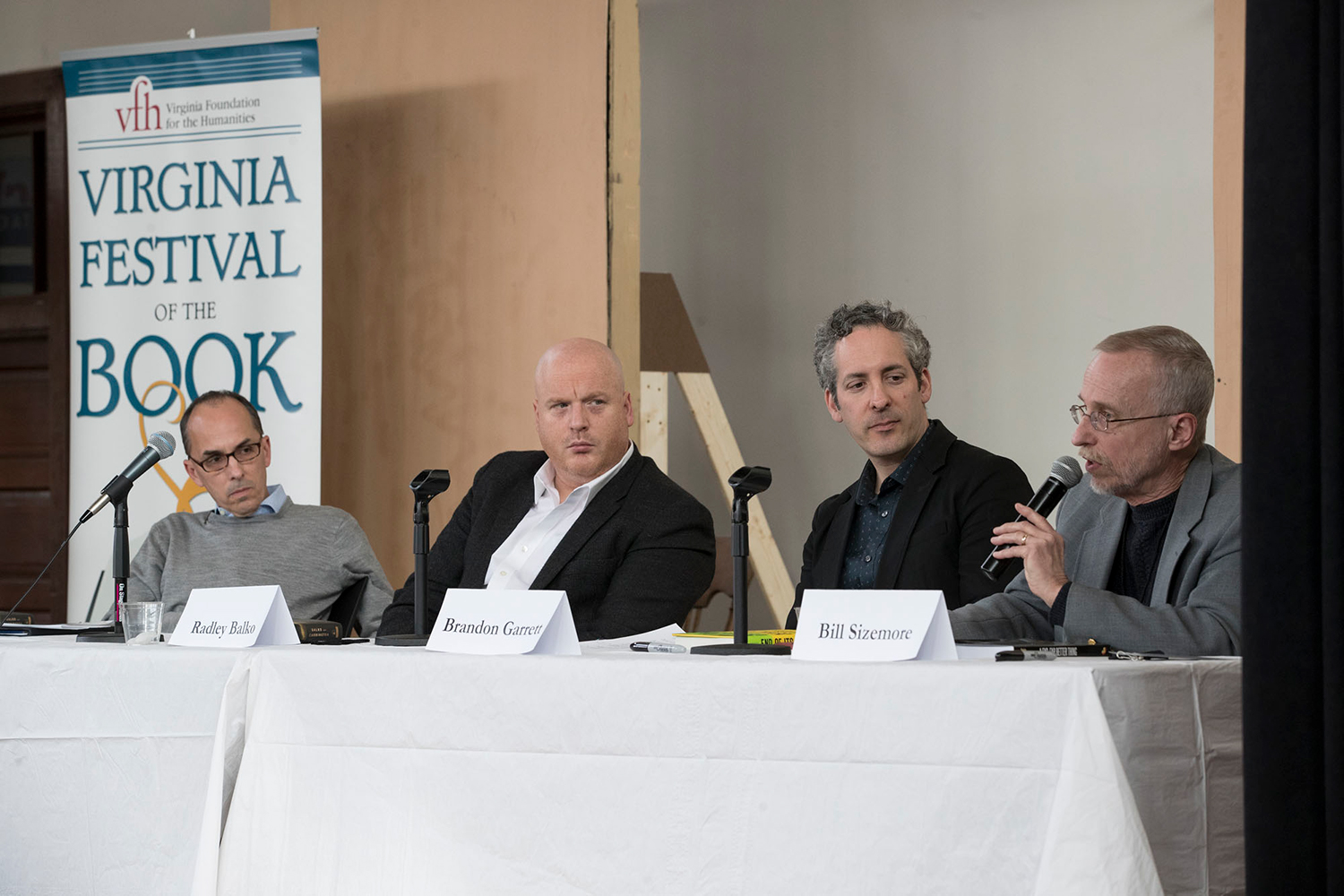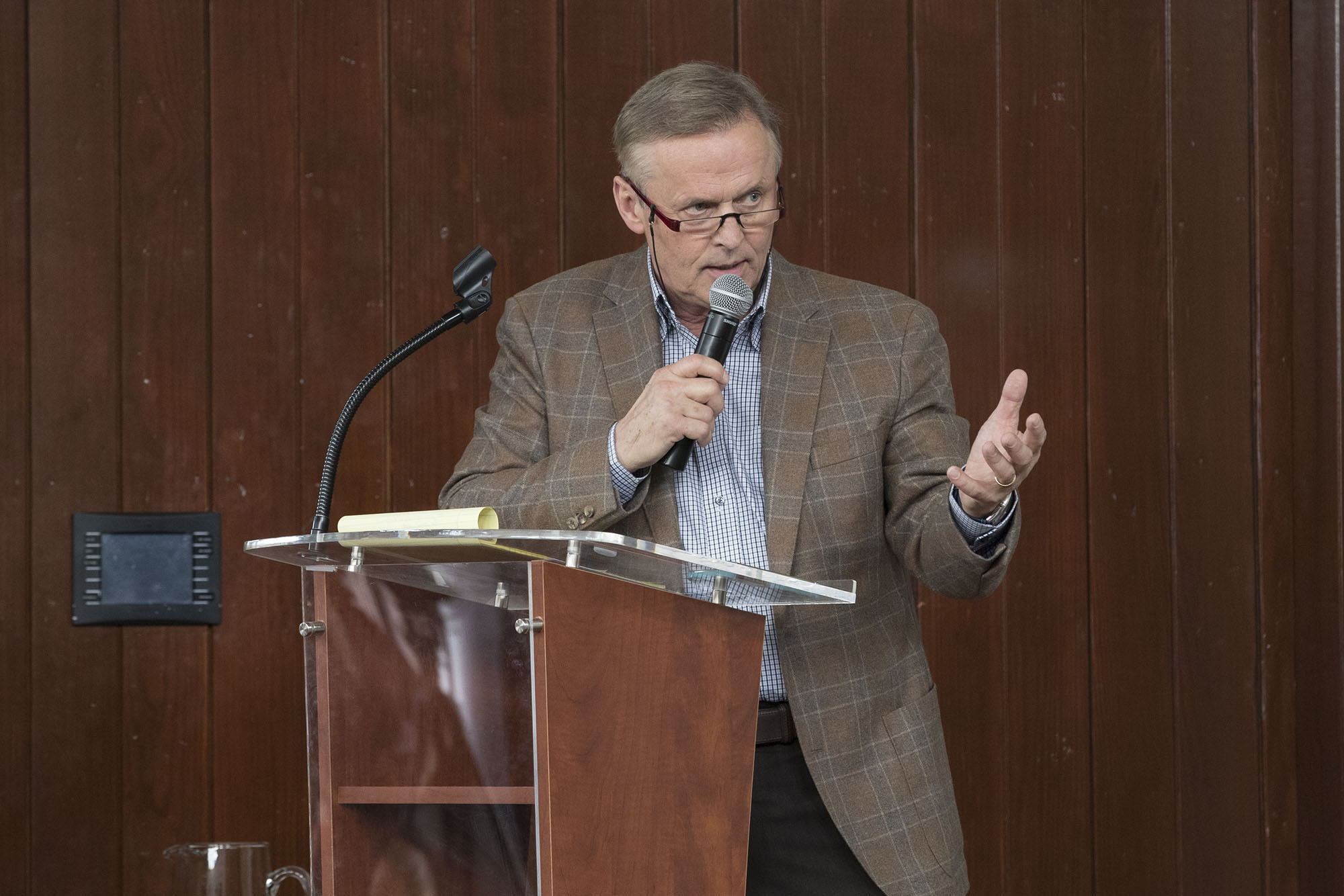The 30th anniversary of the publication of John Grisham’s “A Time to Kill” is next year.
The best-selling book, which became a movie starring Matthew McConaughey, Sandra Bullock, Samuel L. Jackson and Kevin Spacey, is about an African-American father’s quest for a fair trial in a segregated Southern town.
These days, Grisham is still pursuing what he perceives as fractures in the American criminal justice system.
As part of the Virginia Festival of the Book on Thursday, the former lawyer moderated a roundtable discussion “Criminal Injustice: Bias, Incompetence and Excess,” which also featured University of Virginia law professor Brandon Garrett.
Taking place at the Jefferson School African American Heritage Center in downtown Charlottesville, the event also included authors Radley Balko, Tucker Carrington and Bill Sizemore.

From left: Tucker Carrington, Radley Balko, UVA law professor Brandon Garrett, and Bill Sizemore. (Photo by Dan Addison, University Communications)
Garrett’s new book, “End of Its Rope: How Killing the Death Penalty Can Revive Criminal Justice,” aims to illustrate how poor legal representation, overzealous prosecution and racial discrimination, among other factors, undermine the pursuit of justice.
Garrett, the Justice Thurgood Marshall Distinguished Professor of Law, said defense lawyers have “changed the game” in Virginia, which hasn’t handed out a death sentence since 2011.
“When you compare trials starting in 2005 in Virginia with ones in the ’90s, all of a sudden the defense starts calling more experts than the prosecutors,” Garrett said. “All of a sudden, the sentencing trials about whether to exercise mercy becomes twice as long as the part of the trial where you’re talking about guilt.”
Garrett found the trend happening across the country.
“The good news is that on its own, without the courts doing it, without lawmakers doing it, the death penalty has run into the ground,” Garrett said. “It’s a sinking ship. And it’s because of people – jurors turning away from the death penalty when they hear the full story of even a murderer’s life. And I think that says something really powerful about our capacity for mercy in this country.”
Carrington and Balko’s book, “The Cadaver King and The Country Dentist” – for which Grisham wrote the foreword – is about two men who were wrongly convicted of the rape and murder of two children in rural Mississippi.
“It’s depressing,” Grisham said, “but a lot of good books are.”
Balko called the book an “indictment” of Mississippi’s and Louisiana’s criminal justice systems over a 20-year period.
“We kind of looked at the broader picture of how bad science, bad forensics gets into the courtroom in the first place,” Balko said, “and how our court system just isn’t equipped to deal with that over the last couple of generations.”
Grisham, who served as the commencement speaker at UVA’s 2007 Final Exercises, said a lot has changed in America since he wrote “A Time to Kill” in the mid-1980s. But for the most part, he believes the story stands the test of time.
“There are some differences now,” he said. “For example, the Klan was not that active back then, but they were still around. They were a factor in that trial [within the book], but it wouldn’t be the same now.
“The issues of retribution are still pretty huge,” he said, referencing the recent example of a father of three molestation victims who attempted to attack the disgraced former sports doctor Larry Nassar during court proceedings. “Those feelings are still pretty strong. Race relations are better, but still complicated … so I think it holds up as a story.”
Media Contact
Article Information
March 22, 2018
/content/book-festival-john-grisham-explores-issues-fractured-justice

